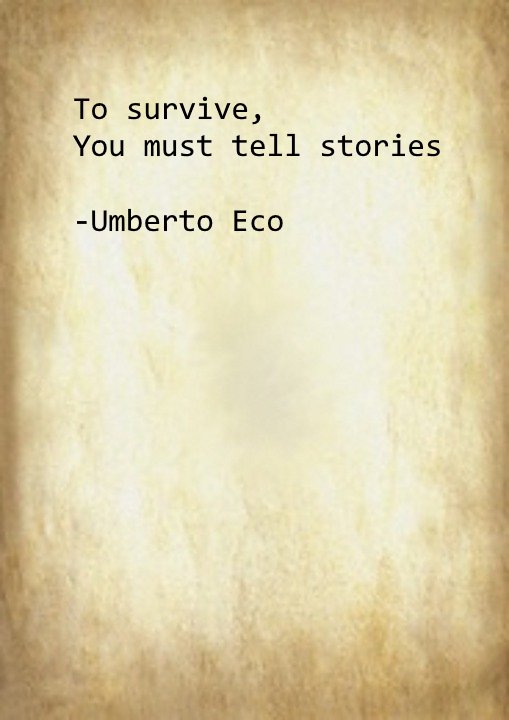“You become friends with someone you wouldn’t be able to stand if you actually had options.”
Via cookie of fortune ...
Position 67: Aussie Birthday Barbie with Ritcie and Adrian's of Chatswood West Melting Pot ...

My Mamka was a master chef in a communist school kitchen so theatre of absurd in kitchens shoulde be noted by Media Dragon ;-) In one of those life imitates art, art eats life moments, chef Marco Pierre White declared to the contestants on his new television series: "I don't know who any of you are. I haven't got a clue."
The moment could have been a devastating indictment on the parlous state of celebrity reality shows, were it not for the fact that Hell's Kitchen Australia is a devastating indictment itself, on the parlous state of television cooking shows.
Life would not be worth living under communism or capitalism without the s***** that tends to rise to the top in our political and working lives. Linking to quotes like the above is all connected to God's testing room ... May real and virtual world continues to be peppered with laughter and forgiveness as most idiots do not know what they are saying or doing ...
(According to the program, the character is based on one Dominik Tatarka, a Slovak writer who died in 1989 ( Charter 77 )



Malkovich, Lost in Mid-Atlantic - NYTimes.com
Amazon has promoted director of consumables for Germany Rocco Braeuniger to country manager for Australia, where the company plans a significant expansion. They have chosen alocation about 26 miles from Melbourne for their first warehouse, which will stock "hundreds of thousands of products for delivery to customers across Australia."
This free tool will help you pause the flood of email with just one click
This free tool will help you pause the flood of email with just one click
“Fortune cookies aren’t really about the future; they’re all about you
How work changed to make us all passionate quitters
The Guy Who Invented Those Annoying Password Rules Now Regrets Wasting Your Time
Everything is random: Why history’s overrated for risk management American Banker
The credit crisis landed hundreds of people in jail FT. Senior Wall Street executives prosecuted: 0.

i was in the ocean and this lil kids like "what happened to ur arm" and i told him it was a shark and he ran out and has yet to get back in ... by arm dealer
| GOOD Magazine |

“What makes a work literary in the first place is that it is of interest outside the context of its origin.”
Which is why we still read poems about a Bronze Age siege and a Scottish king’s domestic troubles. I once told a fellow reporter she could learn more about the first Gulf War by reading The Iliad than from reading the Times and watching Wolf Blitzer. I half-believed what I was saying, but she didn’t argue, bought a copy of Robert Fitzgerald’s Iliad, read it and even thanked me. Here’s how Gary Saul Morson and Morton Schapiro develop the idea in Cents and Sensibility: What Economics Can Learn from the Humanities (Princeton University Press, 2017):
“Dickens and Tolstoy have important things to say to us even if we don’t care about nineteenth-century Europe and Russia. Gibbons’s [sic] Decline and Fall of the Roman Empire has long been outdated as a source for understanding ancient and medieval history, but it is still read—as literature—for its insights into human nature, its sense of human experience, its sardonic vision of the historical process, and the inimitable style with which it is expressed. Herodotus’s Histories and Boswell’s Life of Johnson, though originally offered for their factual content, survive as literature for much the same reasons. And although the great novelists do indeed document their times, that is usually not what makes them great novelists.”
Morson and Schapiro are precisely accurate in their understanding but unlikely to persuade a skeptical soul. Why do some of us recognize works of literature and pursue them for that reason, while others run away? It has nothing to do with virtue or smarts. It may come down to what Louis Armstrong is supposed to have said about jazz: If you have to ask what literature is, and why anyone would want to read it, there’s a good chance you’ll never know. In schools, as Morson and Schapiro point out, literature is “reduced to a simple message”:
“A student explained to Morson that she didn’t see the point of reading Huckleberry Finn if all it told her was (as she had been taught) that `slavery is wrong.’ Surely, she knew that before; and if that is all the book amounted to, she would be right to think it a waste of time.”
Morson teaches Slavic languages and literatures at Northwestern University, where Schapiro is the president and a professor of economics. This is the first book about economics I have read (as literature) since The Wealth of Nations in 1972. I’m not a critic and have no interest in defensively formulating theories about literature. The definition my late friend David Myers came up with some years ago seems to work pretty well: “Literature is simply good writing—where `good’ has, by definition, no fixed definition.”
Experts speaking at ‘Happiness and its Causes’ recently held in Sydney, found that while wellbeing and happiness are words that are often used interchangeably they are not the same. Happiness is an ingredient in wellbeing, but you can have wellbeing without happiness. That certainly provides food for thought. Just think about the adage that money doesn’t buy happiness. What it boils down to is a sense of purpose and meaning. And studies confirm that people who are focused on giving back to communities or on personal growth were more likely to be happy than those who weren’t. It makes sense and also applies in business. Purpose is why people work for you, buy from you, stay with you, share you and proliferate you. It really is about making happy choices – both in personal life and in business and enabling others to do the same.
Netflix's culture is more like a team than a family
Tech Companies Are Rotten At The Core

The problem is way larger than any high-level Googler's anonymous anti-equity rant. "The kind of computing systems that get made and used by people outside the industry, and with serious consequences, are a direct byproduct of the gross machismo of computing writ large. More women and minorities are needed in computing because the world would be better for their contributions—and because it might be much worse without them." …[Read More]
Professional cuddling is one of the latest iterations of self-care and wellness, focusing on touch therapy. Since the early 2000s, the field of professional cuddling as a therapeutic tool has transitioned from stigmatized field with pay-for-sex undertones to a legitimate service for healing with proven health benefit.
Looking back on the landscape of human knowledge over the span of her long career, she writes in her autobiography:
We know much less than we did when I came here as a student more than 50 years ago.
Shifting from the evolution of scientific knowledge to the evolution of culture, she reflects on what it takes to override the forces of resistance:
Advice to the Young from Pioneering Astrophysicist Cecilia Payne-Gaposchkin, Who Discovered the Composition of the UniverseI have reached a height that I should never, in my wildest dreams, have predicted 50 years ago. It has been a case of survival, not of the fittest, but of the most doggedly persistent. I was not consciously aiming at the point I finally reached. I simply went on plodding, rewarded by the beauty of the scenery, toward an unexpected goal.
NINE straight highs for the Dow Jones Industrial Average might suggest that all is well with capitalism. But on the contrary, they could be a sign that things have been going profoundly wrong with the way the system is working.
The main driver for the surge in share prices this year has been the strength of profits; second quarter profits for S&P 500 companies are around 12.6% higher than a year ago, according to Andrew Lapthorne at Société Générale, a French bank. As the chart shows, relative to GDP, profits seem to be regaining their levels of recent years. And those levels are much higher than they have been in much of the post-war era (see chart)
Capitalism
Switzerland’s First-World Problem: What to Do With $750 BillionWall Street Journal (Li). The idea of spending foreign reserves domestically is incoherent and self-defeating but politicians have done a terrible job of explaining why
Bahnmueller suffers from hearing loss so severe that a year ago he underwent surgery to install a cochlear implant—an electronic device in the inner ear that replaces the usual hearing mechanism. Around a million patients have undergone this increasingly mainstream form of treatment, and that’s just a fraction of those who could benefit from it. (Of the 360 million people worldwide with hearing loss, about 10 percent would qualify for the surgery.) “For those who reach a point where hearing aids no longer help, this is the only solution,” says Allison Biever, an audiologist in Englewood, CO who works with implant patients. “It’s like restoring a signal in a radio station.”
You don’t win anything for being saddest the longest, Dr Stein has said. There’s no prize for being the most miserable. You are not betraying anybody by trying to live a better life. You are not giving up on anyone.I’m not telling you to be happy. I’m telling you that it’s okay to have moments when you are not sad. You can laugh, maybe once a month, maybe twice. It’s okay.Here’s the thing. You think only one specific event, one miracle, will make things better, but actually life will get better if you only let it. You have to let life get better. You have to for your family’s sake, and for your sake. You don’t think your happiness matters, but it does. It matters for your family. They can’t be happy unless you see that you have the ability to be. Time will help. It can be agonisingly slow, but it always does
'Mistakes can be made': CBA blames software for scandal

Why Do Women Bully Each Other at Work? Atlantic. Honestly, I have no idea what planet these women live on. Women bully women. This is news? Personally, I don’t expect women to be on my side, since they’ve never been. And aside from that, I would never assume a fellow woman in a position of power would treat me well or help me. Among other reasons, they are too insecure in their own standing to be able to spend chips on assisting others. It takes most of their available resources to hang on to their spot, since men will target a woman precisely because she’s assumed to be easier to isolate and dislodge. At least in finance, and I would assume this is the case elsewhere, men in organizations poach women’s terrain (turf wars, trying to steal their clients) more than they would a fellow man (the article in a fashion acknowledges this as an issue towards the end). So it makes sense that they’d bully even more when the stakes are high and they are having to devote extra energy just to protect their position. The author (and the women interviewed) never seems to grok that the senior women lash out because they are often at the limits of their capacity, can barely tolerate another demand, and the women who make requests don’t seem sufficiently cognizant (from the boss’ perspective) that they are doing just that. I wonder how much groveling would help. Seriously. But the other part is the subordinate women are likely harangued more because they are safe targets. And that should stop.
Yet the women in this story bizarrely expected other women to help them:
Many women told me that men had undermined them as well, but it somehow felt different—worse—when it happened at the hands of a woman, a supposed ally.
Future
of skills and lifelong learning
UK Government Office for Science, 18/7/17. The project has identified 5 main issues:
UK Government Office for Science, 18/7/17. The project has identified 5 main issues:
•young adults have lower levels of numeracy and literacy in the UK than
in other advanced countries
•employers report that people leaving education are not work-ready
•people with skills frequently do not use these skills
•certain regions and sectors have a low supply of and demand for
skills, leading to low productivity and slow growth
WhatsApp:
Now one billion people send 55 billion messages per day
ZDnet
ZDnet
Three Big Data Developments No One is Talking About
IGNORANCE of the law is no excuse for breaking it. Over the weekend two Chinese tourists were arrested in Germany for photographing themselves making Hitler salutes outside the Reichstag building in Berlin. The country has strict anti-hate laws, which prohibit pro-Nazi symbols and speech. The Chinese pair were released on €500 ($590) bail; police said they could face as much as three years in prison. However, the men were told they were free to leave the country, and that if a fine was handed down at trial, the bail money could be used to cover it.
Gulliver does not intend to get into the rights and wrongs of Germany’s anti-hate laws. (For what it’s worth, he would think the Hitler salute crass, insensitive and insulting while not considering that a high enough bar to curb freedom of expression.)Berlin
IGNORANCE of the law is no excuse for breaking it. Over the weekend two Chinese tourists were arrested in Germany for photographing themselves making Hitler salutes outside the Reichstag building in Berlin. The country has strict anti-hate laws, which prohibit pro-Nazi symbols and speech. The Chinese pair were released on €500 ($590) bail; police said they could face as much as three years in prison. However, the men were told they were free to leave the country, and that if a fine was handed down at trial, the bail money could be used to cover it.
Gulliver does not intend to get into the rights and wrongs of Germany’s anti-hate laws. (For what it’s worth, he would think the Hitler salute crass, insensitive and insulting while not considering that a high enough bar to curb freedom of expression.)Berlin
